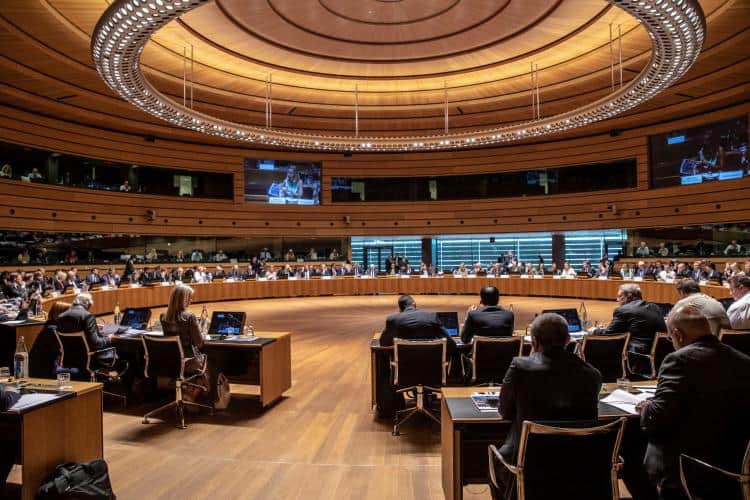The EU Foreign Affairs Council met yesterday where they discussed a range of issues including potential sanctions against Turkey over their unilateral actions in Varosha, Cyprus.
According to an announcement, the Council considered the impact of the unilateral actions taken in July 2021 by Turkish Cypriots and Turkey in breach of UN Security Council Resolutions. Member states expressed their solidarity vis-a-vis Cyprus and their support for the UN-led negotiation process, and for the new Special Representative of the UN Secretary-General and Head of the UN Peacekeeping Force in Cyprus Colin Stewart.
It was agreed that Coreper (the Committee of Permanent Representatives in the European Union) would further evaluate the options on the table, which also include the creation of a specific sanctions regime focused on persons and entities having a direct involvement in the opening of part of Varosha after July 2021.
The EU Ministers of Foreign Affairs restated that it is essential that Turkey re-engages seriously in the UN process and refrains from any action that would further deteriorate the situation on the ground.
Other agenda items discussed:
Ministers then reviewed the situation in Belarus, in light of the 5th wave of sanctions recently agreed on. It was considered that restrictive measures imposed against the misuse of migrants had brought results. The domestic repression by the Lukashenko regime is nonetheless getting worse, as the number of political prisoners has risen to more than 900. Ministers restated that the EU stands in solidarity with, and will continue to support the Belarusian society.
EU-Africa relations
The Council discussed EU relations with Africa ahead of the December European Council, and in preparations of the 6th EU-African Union summit due to be held in Brussels in February 2022.
The discussion stressed that the EU can be more concrete, practical, visible and operational in dealing with its African partners.
Key areas for enhanced engagement include COVID response, vaccine distribution, peace, security and governance, green and digital recovery through initiatives under the Global Gateway, and better cooperation in the multilateral fora.
Central Asia
The Council exchanged views on Central Asia with a specific focus on stepping up the EU’s ambition in the region.
The EU has a strong interest in intensifying political engagement with Central Asia and seeing it develop as a more resilient, prosperous and more closely interconnected economic and political space. Such interest in stronger cooperation is also reciprocated by partners in the region. Possible areas of enhanced cooperation include promoting green and sustainable post-COVID-19 recovery – for instance through flagship Global Gateway projects -, and managing the repercussions of the situation in Afghanistan and other security related challenges. Engagement in areas of business and investment but also human rights, democracy, rule of law and governance was also considered to be important.
Venezuela
Ministers were informed about the results of the Venezuelan regional and municipal elections held on 21 November 2021, and on the main findings of the EU Election Observation Mission (EOM), by the Chief Observer of the EOM, Member of the European Parliament Isabel Santos.
Ministers agreed that the EU would continue to promote democratic transition in Venezuela. The ultimate goal remains a Venezuelan-led solution to the crisis that leads to credible, inclusive and transparent elections at all levels.
Council conclusions and other decisions
The Council approved conclusions on the Common Security and Defence Policy Compact.
Civilian CSDP Compact: Council conclusions commend progress (press release, 13 December 2021)
It also adopted a new sanctions regime allowing to target persons and entities obstructing the political transition in Mali, as well as restrictive measures against persons and entities in relation to the Wagner Group. Activities of this group reflect Russia’s hybrid warfare strategy, present a threat and create instability in a number of countries around the world.
The sanctions will cover the Wagner group itself, three companies with links to the group and eight military operatives responsible for serious human rights abuses or destabilising activities in Ukraine, Syria, Libya, the Central African Republic, Sudan and Mozambique.


